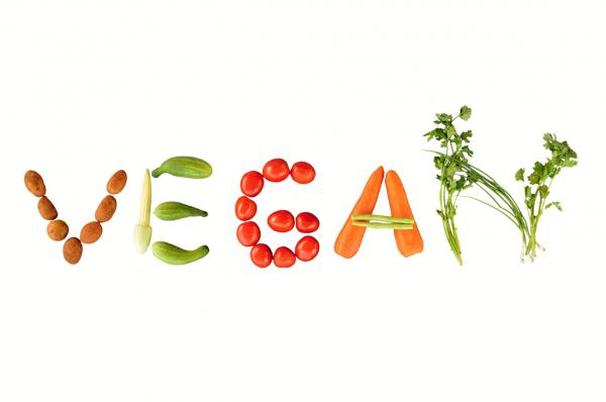|
Every time someone tells me "I'm going vegan", my heart swells. This is mainly because they're always coming from a place of wanting better. Better for themselves, better for the environment, and better for humanity. My initial inspiration for going vegan was a deep desire to improve my health. I have been and will continue to be candid about my struggles with my health precisely because I know that I am not alone. Your health struggles may not look like mine, but the desire to stop existing in misery and to start thriving is the same.
That all being said, one of the most crucial things that I've learned during my journey is that food is so much more powerful than we've been taught. We've all grown up in a world where there's a pharmaceutical answer to everything, and while I do believe that modern medicine has the potential to bring healing to many lives in many instances, I think we've collectively forgotten that there are simpler, cheaper, safer solutions for a lot of what ails us. This is mainly because a lot of what ails us stems from the foods that we put in our mouths. Food (and products masquerading as food) is all too often the problem, but food can also be the answer. 1. Change Your Mindset Food is joy. Food is fuel. Food is culture. Food is celebration. Food is communion. Food is so many wonderful things, but first and foremost, food is medicine. The foods that we should be consuming contain vital minerals, nutrients, vitamins, and other substances that all play key roles in the way our bodies function. Our bodies are literally built by the foods we consume. If you want a strong, healthy, vibrant body, then you have to feed it the foods that will allow it to be so, period. Just as there are foods that nourish and build, there are foods that cause damage and deterioration. We've learned to eat without consciously thinking about what we're putting in our mouths. We've been fooled into thinking that we're eating fairly healthy and in "moderation", but the truth is that the Western diet is extremely immoderate, in more ways than one. When you eat, the main purpose should be to nourish and build. When you're eating consciously, you can better discern how much damage you're actually doing when you do decide to indulge. If your focus is on perpetual indulgence, understand that you are prioritizing fleeting pleasure over your health and well-being. Confront yourself and the reasons why you eat. 2. Embrace Whole Plant Foods Learn to embrace fruits, vegetables, nuts, seeds, grains, legumes (beans), and herbs in their truest, most unprocessed forms. Most people are unfamiliar with the wide variety of non-meat foods that are out there, mainly because the diet that we've become accustomed to as a culture largely rejects these foods. Long before I went vegan, as I was seeking out ways to be healthier, I would Google the nutritional benefits of the foods that I ate. There's a certain excitement in knowing that the food I'm enjoying is also going to contribute to bettering my health. It's a win not only for my taste buds, but for my entire body. The most amazing part is that there are an infinite number of ways to create and combine these categories of foods to create tasty, delicious meals. Some of the most delicious, satisfying meals that I have eaten were created with raw vegetables, fruits, nuts, and seeds. If you've grown up only experiencing poorly-cooked broccoli or bland salads, then it might be hard for you to imagine that meatless meals can taste good. First, I'd suggest that you take a look at my Instagram (shameless plug), where I love to share photos of the meals I eat. I am being completely honest with you when I say that I enjoy food with a depth that I never did before. I used to eat "tasty" meals that would give a brief rush of sugar, salt, or fat, and then I'd feel like crap afterwards. Plants do not do this to me. Trust me when I say, plants can be both nutritious and delicious. You just need to season them. ;) 3. Learn How To Cook So I know there are people who are going to see this tip and immediately sigh in frustration. In our fast food, pre-packaged microwaveable world, cooking has been placed somewhat on the back burner. People simply cook less than they used to, and many people enter into adulthood without ever really learning how to cook a meal for themselves. When you're eating a Standard American Diet, it's much easier to get away with not knowing how to cook, because between quick frozen meals and takeout restaurants, a cooked meal is only a few presses of a button away. Even though more restaurants are adding vegan options to their menu, you will find that it's still not as easy to eat out, especially if you don't live in a major city or don't have access to a nearby vegan restaurant. Cooking for yourself and having fully prepped meals in your fridge will save you from those frustrating moments of not knowing when to eat. You'll also have the comfort of knowing exactly what ingredients were used to make your meal. 4. Seek Inspiration When learning how to cook, the internet is your friend. Instagram is a great way to see what other vegans are eating, which can help you to avoid the trap of staring longingly into the fridge, wondering what the hell to do with all the plant foods you just bought. Once you've got an idea of the kinds of foods you're ready to experiment with, find recipes. You can simply search Google, check out Pinterest, watch YouTube videos, or even do it the old-fashioned way by checking out cookbooks from your local library. There are also many vegans online who share their recipes via blogs or free e-books. No matter what kind of meal you want to make, I guarantee there is a recipe for a tasty, veganized version out there. You just have to do a bit of research. 5. Keep The Processed Foods To A Minimum I call myself a vegan because I am vehemently against the killing of animals, but my diet is deliberately plant-based because I believe that it is important to eat a diet that allows the body to thrive at its most optimal, healthy level. That all being said, you can absolutely go vegan and still eat terribly. There are vegan doughnuts, vegan pizza, vegan burgers, and french fries are almost always vegan (wtf McDonald's?). There are LOTS of tasty vegan meals out there that aren't at all healthy, and I do love to partake, but only occasionally. If you're going vegan because of health concerns, don't make the mistake of assuming that vegan automatically equals healthy. It does not. If you're concerned about health, processed and junk food should never make up the bulk of your diet. Seek out whole plant foods that are as close to their natural form as possible. 6. Experiment With Flavor Personally, I like to take an intuitive approach to cooking, and I draw a lot of inspiration from my Jamaican roots and the foods that I grew up eating. I'll often use other peoples' recipes as a foundation and put my own spin on it. I think about the flavors that I love, and being of Jamaican descent, I really appreciate flavorful, spicy, savory foods with lots of depth, so I make sure to keep certain things on hand at all times, like a variety of different seasonings, and ready-made spice blends. Garlic, onion, scallion, thyme, tomato, scotch bonnet pepper, curry powder, and jerk seasoning are the foundation of a lot of the meals I make. Going back to your roots or learning the flavor profiles of cuisines that you enjoy is a great way to learn how to work with a variety of flavors. 7. Give Your Taste Buds Time To Adapt Most of us have spent our lives eating foods that are unnaturally high in salt, sugar, and fat, and our taste buds have gotten used to this. This is why many people think that fruits and vegetables taste disgusting; nature hasn't spent time in a lab formulating foods that are so flavorful that they cause use to become uncontrolled addicts. (Salt, Sugar, Fat by Michael Moss is a great accounting of how the food industry has formulated our "food" to keep us coming back). Indeed, most of us are addicted to the junk and fast foods that we've grown up eating, so when we eat a meal that doesn't give that same kind of flavorful high, we don't think of it as tasty. When transitioning to a plant-based diet, it's going to take a while for your taste buds to adapt to foods in their natural state. Be patient with yourself. Eventually, you'll learn how to enjoy real food again. 8. Find Support You're going to encounter negative feedback. You may have conflicts or awkward moments with family or friends. Depending on who you are and where you are, going vegan or plant-based can be a lonely journey. The good news is that there are plenty of people who have already adapted this lifestyle, and most of them are willing to be there for you. Social media is an amazing way to connect with like-minded people who can support you and give you guidance. There are also lots of vegan meetup groups, with a variety of purposes and focuses. Feeling alone should never be a reason why you abandon your journey, the community is here and we're all willing to help. 9. Release Old Paradigms Success in maintaining a vegan or plant-based diet requires you to reject old ways of thinking and broaden your perspective. Here are a few things to ponder, research and sit with for a bit:
10. Define Your Purpose Why exactly did you decide to go vegan or plant-based? It's easy to say "for the animals" or "for the environment" or "for my health", but what does that truly mean? You're making this change because you believe that there will be a certain positive consequence that will follow. You want to eat better not just because you think it will help your debilitating migraines or your arthritis or your depression. You want to eat better because you're tired of the life you're experiencing. You want a better quality of life. You want happiness, you want joy, you want better relationships. You want better. Or, it could be that you watched a horrible insider video of a factory farm and you're angry about the ways animals are treated. Your desire is fairness, justice, and equality for all sentient beings, because you honestly believe that that is the key to making the world a better place. Or you're concerned about the environmental effects of animal agriculture. You're concerned about the future of your children and their children. You want them to have happy, healthy lives. You're concerned about the future of the world that you call home. I say all this because, you have to know what it is you're holding on to, particularly if you're struggling to let go of old habits. Defining and truly understanding the why can help give greater purpose to your actions, allowing you to seamlessly adapt to this new lifestyle.
3 Comments
1/5/2018 08:52:40 pm
It took me a while to convince myself I would rather go full vegan than just be vegetarian. I had been a vegetarian because I don't want any animals killed just for food. So I thought milk and eggs are perfectly okay. Then I read about how they are treated inside farms and that's the end of it for me. Unfortunately I have very little knowledge on how else I can be nourished. So I employed some indian concepts to teach me. Wish me luck. I pray that all kinds of violence will end today.
Reply
11/3/2022 06:24:53 pm
It helped when you said that food could supply nutrients for us that we can't imagine. A few nights ago, my brother informed me he was planning to start his fitness journey by eating plant-based foods for his diet. He asked if I had any thoughts on the best option for him to begin. I appreciate this instructive article, I'll tell him he can consult a plant-based food website to gather innovative information about them.
Reply
Leave a Reply. |
AuthorMy name is Nivea, but you can call me Niv. I'm an independent Plant-Based Nutrition & Fitness Coach hailing from the Bronx, NY. Archives
August 2021
Categories
All
|



 RSS Feed
RSS Feed